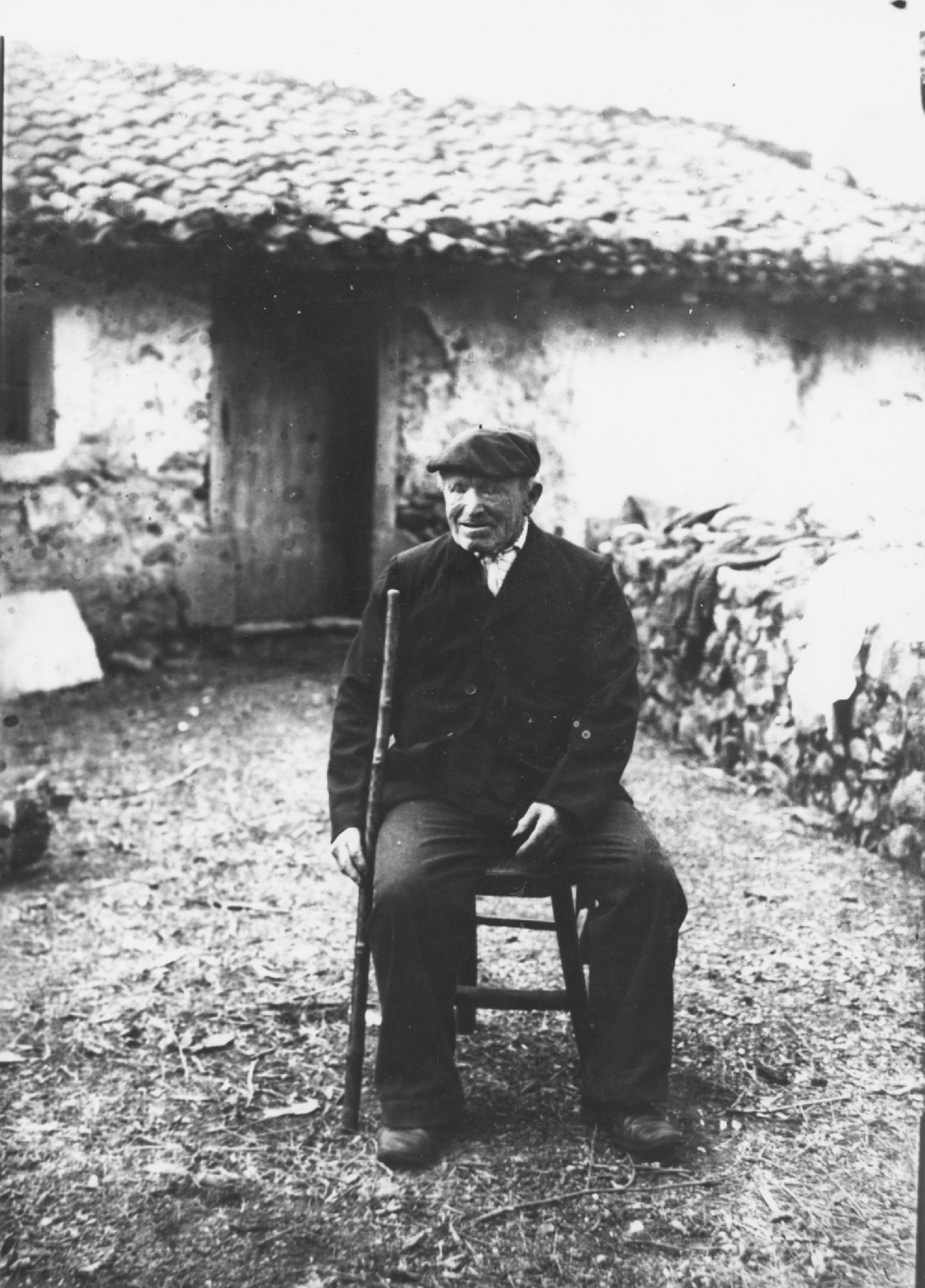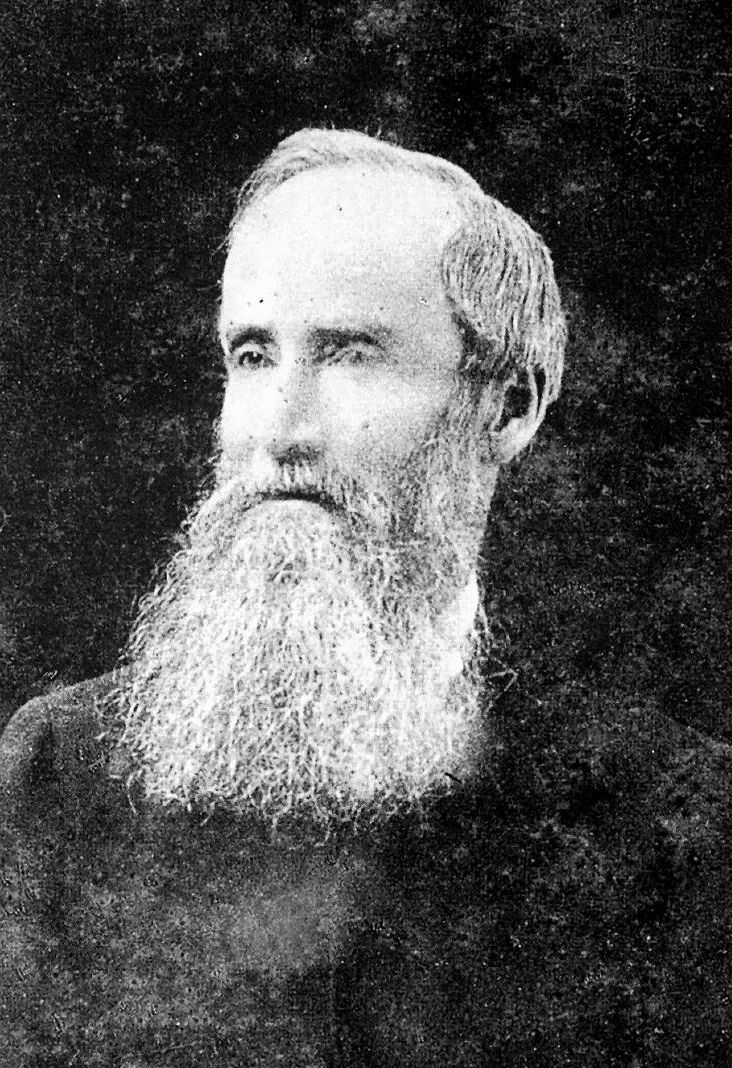[PERLAK] Lehen kronikak: Pello Errotaren saioa ingelesez
Pello Errotaren saioa ingelesez –
Atzerrian euskal kulturak sortzen zuen interesaren erakusgarri, euskara edo gaztelerazko lehen bertso kronikatik ingelesezko lehen bertso kronikara ez dira bi urte baino pasatuko.
Wentworth Webster britainiarra (1828-1907) izan zen testuaren egilea. Bizibidea apaiz anglikano gisa atera arren, goi mailako ikasketez horniturik, Oxforden Master of Arts titulua zuen eskuratua, folklorista gisa lan itzela egin zuen honek bere bizi guztian zehar. Munduan zehar bidaiatu ondoren, Pirinioetan jarri zuten bere apaiz lanak betetzeko eta, 1864tik aurrera, Ipar Euskal Herrian finkatu zuen bizilekua. Berehala erakutsi zuen bertako kulturarekiko interesa, euskara ikasi eta 1865eko urtarrilerako Londreseko Mac-Millan’s Magazinen A Basque Pastorale ikerlana sinatu baitzuen Hurt anderearekin.
Euskal gaiei buruz Basques Legends (1877), Grammaire Cantabrique Basque (1900) eta Les loisirs d´un Étranger au Pays Basque (1901) liburuak argitaratu zituen. Britainia Handian, Estatu Batuetan, Frantzian nahiz Espainian argitaraturiko artikulu zerrenda amaigabea da, ordea, bere lanaren benetako neurria ematen duena. Bertako intelligentsiarekin oso harreman onak izan zituenez (Abbadie, Manterola, Vinson, Urquijo…), Euskal Herriko garaiko prentsan ere (Euskal-Erria, Euskalerriaren Alde, Euskalzale…) aritu izan zen kolaboratzaile lanetan. Ez da harritzekoa horrelako langile porrokatuak bertako jende ikasiaren artean jada oihartzuna lortzen ari zen bertsolaritzari erreparatzea.
Vinson bezala, ikerlari atzerritarren tradiziotik dator Webster. Hark bezala metodo zientifikoa jarraitu ohi zuen hertsiki, eta lanik gehienak aldizkari espezializatuetan argitaratu zituen. Ingelesezko lehen kronika hau, ordea, aldizkari literario batean argitaratu zuen, Londreseko The Cornhill Magazinean. Ipuinak, bitxikeriak eta kronikak tartekatuz, garai Victoriarrean modan jarri zirenen ereduko aldizkaria zen hori, guzti haietatik salduena. Victoria erreginak ere argitaratu izan zuen bertan berak sortutako testuren bat.

Jaialdia euskaldunen artean
Bertso kronika baino zabalagoa da testua, urte hartan Saran jokatu ziren Lore Jokoak deskribatzera dator, eta horien azterketak izan dezakeen interesa aipatuz egiten du sarrera:
“(…) Euskaldun modernoen arteko joko eta jaialdiak dira agian, antzinako greziarren Olinpiadak eta joko Isthmikoak alde batera utzita, garai bateko gizartea izan zena modu gordin eta biluzi batean ikusteko hurbilketa onena (…) Galeseko Eisteddfodak jende arteko topaketen alderdi literarioaren adibide dira, Braemargo Highlandersen bilerak, bere aldetik, kirol topaketena. Euskaldunek, ordea, buruaren eta gorputzaren aisialdia elkartzen dituzte euren jaialdietan; bertso edo prosa idazle onenarentzat saria dago eta baita bat-bateko bertsolari onenarentzat, pilota jokalari onenarentzat edota atleta onenarentzat ere”.
Eguraldiak urte hartako ekitaldi gehienak suspenditzea ekarri zuen, ordea, pilota partidak eta bertso saioa baino ez dira jokatuko. Bi orrialde eskainiko dizkio lehenengoari eta hiru bigarrenari.
Abaddieren Lore Jokoen antolaketari erantzuten dio saioak, antzokian beharrean frontoian ari dira, eta antolaketa modu horri buruzko xehetasun interesgarri batzuk eskaintzen ditu testuak. Esaterako, momentuan egiten zen deiari erantzuten diote bertsolariek:
“(…) Pilota jokoa amaitu berri zela (…) marinel zahar batek (…) bere eskuak tronpeta gisa erabilita, inprobisatzaileak norgehiagoka leunago batera deitu zituen. Lehenbizi, nekazari itsu bat agertu zen, Sarako Anibar, mutiko batek lagunduta (…) Ondoren, geldialdi bat egon zen eta jarraian etsipenezko murmurio bat entzun zen, beste aurkaririk ez zegoelakoan. Halere, Kanboko Pellok, ile kizkurdun gazte bat, pauso bat aurrera eman zuen eta ondoren, oihu batek hegoaldeko bertsolari famatuenetako baten berri eman zuen; Gipuzkoako Oiartzungo Elizegi Errotaria. Gero, Nafarroako Etxalarko langile bat altxa zen. Zuraideko Makharrak eta bere txanda iritsi aurretik bihotzak huts egin zion Baigorriko gizon batek osatu zuten zerrenda”.
Informazio dezente eskaintzen du saioaren antolaketa espazialari buruz; bertsolariak, frontoiko hormaren kontra, entzuleriarekiko zer altueratan dauden, epaimahaia bertsolarien eskuinera kokatzen dela… Epaimahaiko kideak aurkezten ditu, jartzen dituzten gaiak ere zehazten ditu, eta baita bertsolari bakoitzak gai bakoitzaren gainean hartzen duen bidea azaldu ere. Berritasunik deigarriena, aurretik jaso diren kronikekin alderatuz, bertsolarien gorputz espresioari egiten dion azpimarran legoke. Honela, esaterako, umore puntua ere nabari zaio Kanboko Pello gaztearen gorputz espresioa eta epaimahaiak jarri dion rolaren arteko kontraesana azaltzen duenean:
“(…) Anibar itsuak, soiltasunaren kausa defendatzen zuen bitartean, Kanboko Pello gazteak alaitasunaren alde egiten zuen (…) Pellok ikaragarri urduri zegoela zirudien, bere txapela esku artean gogorki estutzen zuen ikaragarrizko zigorra jaso izan balu bezala eta txapelari bertan legokeen azken hezetasun tanta atera nahiko balio bezala. Ondoren, oso poliki, bere bertsoa abestu zuen, alaitasunaren defendatzailea ezik beste edozer ematen zuela”.
Azken buruz burukora iristea lortzen du, ordea, Kanboko Pellok. Pello Errotaren aurka aritzea tokatuko zaio hemen. Bien gorputz espresioari erreparatuko dio berriro Websterrek:
“Errotaria ez zen oso altua baina bai gorpuzkera sendokoa eta bere besoak bular zabalaren gainean gurutzatuta abesten zuen. Noizean behin, geldialdiren bat zenean, bere anaiak emandako zahatotik ardoari tragoren bat edo beste ematen zion baita. Pellok berriz, altuagoa eta argalagoa bera, bere eskuineko eskuan txapela estutzen zuen eta abesterakoan besoak zabaltzen zituen modu dotore batean. Bere lehenengo bertsoak amaitzean zeharkako begirada bat botatzen zion aurkariari, esandakoak aurkariarengan zuen eragina ikusteko; baina egiteari utzi zion, Errotaria beti prest zegoela ikusita”.
Larri dabil gaztea Pello Errota handiaren aurrean, baina epaimahaiak berdinketa ezarriko du, eta bertso supporterrek bero zorionduko dute: “(..) Udaletxera bideratu zituzten irabazleak sariaren bila; Pellori bere lagun eta miresleek besarkada eta bizkarreko zapladak ematen zizkioten, ia pusketan egiteraino”.
Festival among the Basques, Wentworth Webster. The Cornhill Magazine, 46. zbkia (1882).

The games and festivals of the modern Basques furnish, perhaps, the nearest approach in Western Europe to what may have been their grosser and more brutal features excepted the Olympic and Isthmian games of ancient Greece. Boxing, wrestling, chariot and horse racing have no place in the assemblies of the Basques. The Eisteddfod of Wales presents the literary side of these meetings; the gathering of the Highlanders at Braemar, the athletic. But the Basques unite recreation of mind with that of body; prizes are given equally for the best prose or verse composition, to the best improvisatore, to the successful ball-player, and to the athlete (…)
In the Labourd and in the neighbouring parts of Guipuzcoa and Navarre the ball games are the most keenly practised, though they are common everywhere; and there the ‘gift and habit of improvisation is most frequent, and the coplacari, makers of couplets, or bersolari, makers of verses, contend against each other in poetic strife (…)
We propose now to give a brief description of this year’s fete at Sare (…)
The fete was most sadly curtailed by the weather. Nothing could be done on the second and third days, and but little even on the first. The morning of September 11 opened very gloomily. It had rained heavily during the night, and in the morning rain was still falling (…)
Hardly had the game of ball been concluded, and the spectators left the seats which they had patiently occupied for four hours, when the garde-champetre, a fine old sailor, mounted the wall at the end of the court, and, using his hands like a speaking-trumpet, summoned the improvisatore to a more gentle contest. First a blind old labourer, Anibar of Sare, appeared, led on by a boy (…) Then a pause and a murmur of disappointment began that there would be no other candidate; but a curly-headed youth, Pelho of Cambo, came forward, and then a shout announced one of the most noted of the Spanish bersolari, Elicegni, el molinero (the miller) of Oyarzun, in Guipuzcoa; a labourer from Echalar, in Navarre, then stood up; then Makharra of Souraide, and a man from Baigorry, whose heart, however, failed him before it came to his turn, made up the full list (…)
The candidates were successively brought forward in pairs to the edge of the wall, standing high above the heads of the mass of the audience, chiefly men, in the court beneath. Then ensued a rapid consultation among the jury, and the theme for poetical debate was given out. Anibar the blind defended the cause of “Sobriety” against young Pelho of Cambo, who maintained that of “Good Cheer”. Each sang, or rather chanted, a verse at the top of his voice, to which his rival replied. The old man, in a voice somewhat broken by age, started with a stanza which might be the prelude to anything. Pelho looked horribly nervous, and squeezed his beret (cap) in his hands as if he were doomed under severest penalties to wring out the last drop of any moisture that might be in it. Very slowly he sang his first verse, looking anything but like an advocate of good cheer(…)
Now came on the final struggle between Pelho and the miller, the one a French, the other a Spanish Basque, a circumstance which gave almost an international character to the competition. There was, however, but little expectation among the French that their young champion would hold his own against the redoubted victor of many a former contest. It was amid breathless silence (except on the part of some chattering girls) that the two began. The miller defended the condition of “A poor Peasant Proprietor”, Pelho that of “A Servant or Metayer (tenant) under a Good Master”. The appearance and attitude of the men were very different.
The molinero is a man of barely middle height, but of Herculean build, and he stood with arms folded across his broad chest, occasionally, during a pause, taking a hasty sip from a small wine skin proffered by his brother. Pelho, taller and slighter, crushed his cap in his right hand, and when singing swayed both arms to the tune in no ungraceful fashion. At the close of each of his first few verses he turned with an arch glance to see their effect on his opponent; but he discontinued this when he found him always ready. The miller sang of the blessings of independence, of the charms of ancestral property, of being at no man’s beck and call, of the rent which the tenant farmer had to pay, &c. &c. “Yes”, sang Pelho in reply; “but I have no anxiety; everything is provided for me; my master is kind and good; I don’t get into debt, and when I have paid my rent I have still money to put by. I do not borrow to cultivate my land, and have no fear of mortgage and of law-Suit”. The improvisation was very rapid. Every verse was saluted with applause; each was evidently ready as soon as his rival ceased, and began the instant that he could be heard. For some six or seven verses Pelho held his own well, but after that the physical strength of the miller began to tell. He seemed as if he could go on for ever; but Pelho was beginning to look worn and exhausted, and at the close of the thirteenth stanza the jury mercifully decided that the prize (80 francs) should be divided between them. Two verses of thanks from each to the jury, to the audience, and to M. d’Abbadie, the prize-giver, concluded the scene, and the successful competitors were hurried off to the mairie to receive the prize, Pelho being hugged and slapped and almost torn to pieces by his admiring friends. (…)


